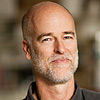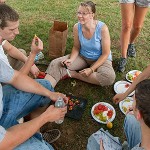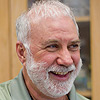
Congratulations to Dave Anderson, professor of biology, whose proposal entitled “LTREB: Evolutionary Ecology of Seabird Reproductive Life Histories (DEB 0842199)” has been funded by the National Science Foundation (NSF).

Congratulations to Dave Anderson, professor of biology, whose proposal entitled “LTREB: Evolutionary Ecology of Seabird Reproductive Life Histories (DEB 0842199)” has been funded by the National Science Foundation (NSF).

Wake Forest University’s Campus Garden overflows with tomatoes. But, with names like Never Ripe and Green Ripe, many will never be the rich, red orbs you’d slice up for sandwiches. These tomatoes – mutant varieties bred for research – will help Gloria K. Muday, Ph.D., a professor of biology, determine Read more »
Congratulations to Bill Smith, whose proposal entitled “Collaborative RUI Proposal: Effects of Contrasting Cloud Regimes on Plant Carbon/Water Relations at Treeline” has been funded by the National Science Foundation (NSF).

Congratulations to Wayne Silver, whose proposal entitled “Undergraduate neuroscience training cooperative between WFU and WSSU” has been funded by the National Institutes of Health (NIH). This innovative program will allow students at Winston-Salem State University, a historically black institution, to complete the requirements for the Neuroscience Minor at Wake Forest Read more »

WFU News Service
Gerald Esch read an excerpt from his book, “Parasites and Infectious Disease: Discovery by Serendipity, and Otherwise” for a program on BBC Radio. His 2007 book deals with the role of serendipity in discovery as it applies to parasitism and infectious disease. The segment on the weekly BBC Read more »